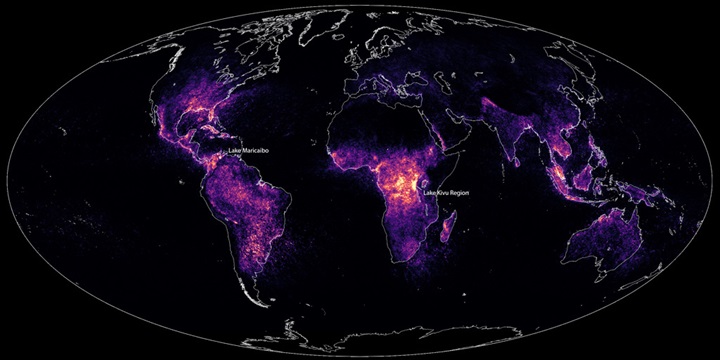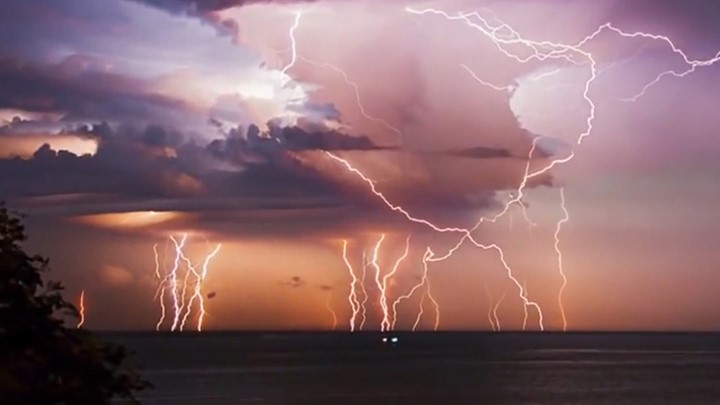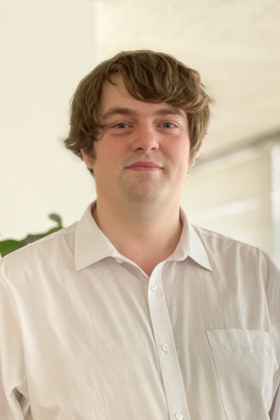Blog Post | “Africa Direct”: How ABE Scholars and ‘Chokusetsu’ Communication Can Drive Japan-Africa Business Links
2025.10.03
Drawing on their diverse professional backgrounds, researchers at the JICA Ogata Sadako Research Institute for Peace and Development (JICA Ogata Research Institute) bring a wealth of experience to the institute. They are actively building partnerships with a broad range of stakeholders. This blog series shares some of the insights and knowledge gained through their research activities. The present post was written by Research Fellow Kaizuka James , who works on a research project “Making Japan’s Business Africa’s Business: Exploring the Impacts of the ABE Initiative ”.
Author: Kaizuka James, Research Fellow, JICA Ogata Research Institute

ABE scholars discussing their experiences
“Chokusetsu! ”, which means “direct” in Japanese, was the enthusiastic message of Mr. Shigeru Miyamoto, the creator of Nintendo’s beloved Super Mario and Legend of Zelda franchises, as he announced a new initiative to create a news app for smartphones. It may seem odd to begin a blog post about the ABE Initiative (officially titled the “Master's Degree and Internship Program of African Business Education Initiative for Youth ”) with a reference to Nintendo, but I promise that this will make sense momentarily.
Nintendo was a pioneer in “chokusetsu” marketing communications through its series of “Nintendo Direct ” broadcasts which started in 2011. A significant break from the customs of old, where intermediaries such as the press and magazines were required to distribute information to consumers, these online broadcasts instead allowed people to see previews of the latest and greatest from the House of Mario unburdened by the need for a layer of media abstraction or social media discourse. This was considered to be a revolutionary innovation in direct-to-consumer marketing, and it has since been widely adopted by others in both entertainment and other industries.
Today, Nintendo Direct broadcasts attract millions of views, generate incredible hype, and have enormous impact, in effect having eliminated the risk of misunderstanding or misinterpretation. The practice of chokusetsu marketing redefined and deepened the relationship Nintendo had with fans, leveraging the power of direct communication, and creating a situation wherein people not only engage with marketing, but actively make time in their lives to seek it out.
The point of this is quite simple. ABE Initiative interns have significant potential to become “Africa Direct”, redefining the flow of information to businesses in a “direct-to-decisionmaker” format and deepening the relationships between these companies and Africa, in exactly the same way that “Nintendo Direct” redefined marketing communications and deepened relationships with fans by focusing on direct-to-consumer messaging. ABE scholars are highly talented, passionate, and knowledgeable individuals who are well-placed to directly present and inform about Africa’s on-the-ground business conditions and opportunities without the risk of misinterpretation, stereotypes and misinformation, and they are especially effective where they can communicate directly with decision-makers.
This post explores this potential using the case of Mr. Mugarura Amiri, a Rwandan ABE scholar who successfully formed a partnership with Otowa Denki, a Japanese company based in Amagasaki, Hyogo Prefecture. Using Mr. Amiri’s example, I will make the case that ABE Initiative interns can play a crucial role in driving institutional knowledge about Africa and identifying business opportunities for Japanese companies.
At TICAD 9 in Yokohama this year, I attended a panel where the topics of directness, stereotypes, and exposure were discussed in considerable detail. My own experience of researching the ABE Initiative had me nodding my head in fierce agreement with the discussion.
While the reasons for the issues discussed in the panel are diverse and complex, geographical distance, lack of in-person experience, and the deep entrenchment of old stereotypes about Africa are frequently cited as major contributors to the lack of institutional knowledge of Africa in Japan. In addition to this, relatively few Africans live in Japan – as of 2019, they numbered only around 25,000 from the entire African continent, vastly below the most represented countries such as China (around 822,000), Vietnam (565,000) and South Korea (410,000). Moreover, of these 25,000, a significant number are students or trainees, and this means that the numbers of people of African origin in Japan’s labour force is quite low.
This makes each and every African employee of a Japanese company even more invaluable as a source of knowledge and expertise, but it also means that many businesses with potentially viable and relevant products and services for Africa simply do not know about their own viability and relevance due to a lack of institutional knowledge and expertise. As I noted in my previous blog post , ABE scholars are not only experts in Japan, but also in their own countries of origin; they are essential sources of knowledge for future investment opportunities. ABE scholars are often also already entrepreneurially minded people with a keen business sense. So how can chokusetsu communication with them be leveraged most effectively? Let’s look at the case of Mr. Amiri.
Mr. Amiri is a first batch ABE scholar from Rwanda who studied IT at the Kobe Institute of Computing. He undertook a six-month internship at Otowa Denki at the end of his program. Otowa manufactures lightning protection devices, which are aimed at preventing electrical damage or disruption due to lightning strikes. As it happens, Rwanda is among the most lightning-prone countries in the world, as can be seen in the map below, where you simply need look for the spot glowing the brightest shade of orange.

A map of lightning strike prevalence around the world, showing high prevalence in equatorial Africa, including Rwanda. Image Credit: NASA Earth Observatory image by Lauren Dauphin, using data from Peterson, et al. (2021, unmodified). Source: NASA SVS | A New Look at Earth’s Lightning
According to NASA data, the Lake Kivu region along the Rwanda-Democratic Republic of Congo border is the joint-highest for lightning occurrence in the entire world. Globally, NASA estimates that lightning strikes cause around 24,000 annual deaths and around 240,000 injuries, in addition to millions of dollars of property damage. If I may briefly put on my “JICA hat” for a moment, this is an acute human security threat – lives and livelihoods are gravely affected by the threat of lightning, including the direct threat of injury or death but also the economic losses stemming from equipment damage, livestock deaths, and power outages among other issues.
For Otowa, a company creating products to address these very issues, this obviously presents a very large business opportunity. Rwanda has a problem, and Otowa manufactures the solution but previously had neither the knowledge nor the channel to actually sell its products. Mr. Amiri’s role was to “bridge” Rwanda and Otowa, utilizing his time in Japan to bring attention to the issues in his home country to Otowa directly. He was, for Otowa, “Africa Direct”. Mr. Amiri now acts as the local representative for Otowa in Rwanda, and he has also closely collaborated with JICA to bring these devices to the whole country. There is even discussion of expanding the business to the wider region, something which clearly presents a significant opportunity when Equatorial Africa glows as brightly as it does on the map above.
During his time at Otowa, Mr. Amiri developed a personal link with the CEO of the company, something which is maintained to this day. This is a key factor in Otowa’s African expansion, as he was able to make the case directly to the company’s key decision-maker. Mr. Amiri brought his knowledge and expertise to his Japanese hosts, who were able to realize a significant and meaningful business opportunity in Rwanda to the mutual benefit of the company, Mr. Amiri himself, and the people of his country more broadly.

Lightning over Lake Kivu, along the Rwanda-Democratic Republic of Congo border. Image Credit: Pierre Galinier/MONUSCO Photos via Wikimedia Commons (2016, unmodified). Source: File:Goma, Nord Kivu, RD Congo- Orage près des locaux de la MONUSCO à Goma. (25602665963).jpg - Wikimedia Commons
The key to Mr. Amiri’s success was chokusetsu – direct - communication. As ABE scholars are required to take on internships just as Mr. Amiri did, they represent an enormous opportunity for Japanese companies to develop their institutional knowledge of Africa. To take advantage of their knowledge, it is crucial for businesses to develop avenues for their interns to make the case for their countries directly to those with decision-making power, either through direct communication with the C-Suite or through effective reporting mechanisms that make their way to the C-Suite and are taken seriously. As Otowa’s case has demonstrated, when information is heard directly, this can lead to significant commercial benefits.
ABE interns, as proved by Mr. Amiri, possess a unique ability to deliver direct, up-to-date, high-quality information on local business conditions and opportunities in Africa. Why is this important? Well, just as people once interpreted the news on the next big release from Nintendo via paper magazines, so too is much of the information on Africa held by Japanese investors sourced indirectly from newspapers, television news, and other intermediaries. At present, much of the institutional knowledge of Africa in Japan does not come directly from Africa or from Africans, but through sources which by their very nature often only give a narrow perspective on the continent and which emphasize crises over achievements and opportunities. Many of the ABE scholars I spoke to noted the frustration that poor understanding of Africa creates, as often the first hurdle they must face in attracting investors is convincing them that Africa is nowhere near as “risky” as stereotypes would suggest.
The ABE Initiative is a significant opportunity for this situation to be reversed. By taking on ABE interns, Japanese companies can directly and powerfully evolve their understanding of the real situation in Africa through ABE scholars in their capacity as “Africa Direct” and identify new business opportunities across numerous sectors including IT, agriculture, and education among others. To build the excitement, hype, and crucially, investment, that will drive both African and Japanese growth in the coming decades, Japanese companies and other stakeholders must follow the lead of Otowa and Mr. Amiri in embracing the spirit of “chokusetsu! ”, and allow ABE scholars to embrace their roles as the strategic bridges that will guide them successfully to mutually beneficial business opportunities in Africa.
Disclaimer: All opinions expressed in this blog post are the author’s and do not reflect opinions of JICA or the JICA Ogata Research Institute.
James Kaizuka
A graduate of the University of Leeds in the United Kingdom, he assumed his current position in 2024. His main research concerns the ABE Initiative scholarship program and its impacts on human resource development, socioeconomic development, and the construction of Japan-Africa links.


事業事前評価表(地球規模課題対応国際科学技術協力(SATREPS)).国際協力機構 地球環境部 . 防災第一チーム. 1.案件名.国 名: フィリピン共和国.

事業事前評価表(地球規模課題対応国際科学技術協力(SATREPS)).国際協力機構 地球環境部 . 防災第一チーム. 1.案件名.国 名: フィリピン共和国.

事業事前評価表(地球規模課題対応国際科学技術協力(SATREPS)).国際協力機構 地球環境部 . 防災第一チーム. 1.案件名.国 名: フィリピン共和国.

事業事前評価表(地球規模課題対応国際科学技術協力(SATREPS)).国際協力機構 地球環境部 . 防災第一チーム. 1.案件名.国 名: フィリピン共和国.

事業事前評価表(地球規模課題対応国際科学技術協力(SATREPS)).国際協力機構 地球環境部 . 防災第一チーム. 1.案件名.国 名: フィリピン共和国.